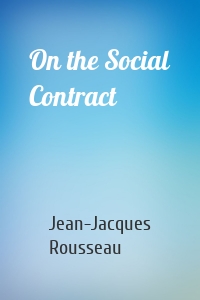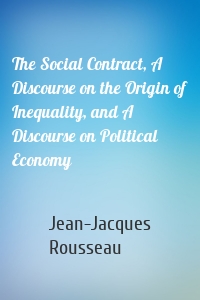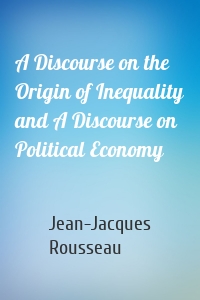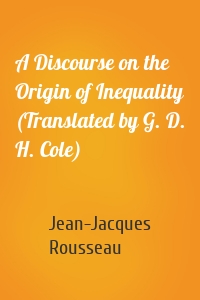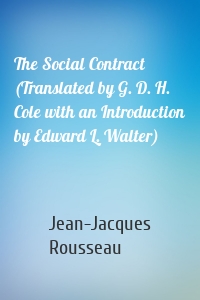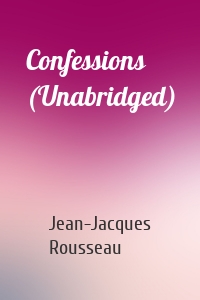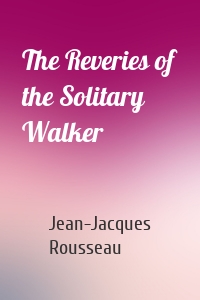Jean-Jacques Rousseau
31 кн.
On the Social Contract
"Man was born free, but everywhere he is in chains. This man believes that he is the master of others, and still he is more of a slave than they are. How did that transformation take place? I don't know. How may the restraints on man become legitimate? I do believe I can answer that question …"Thus begins Rousseau's influential 1762 work, Du Contract Social. Arguing that all government is fundamentally flawed, and that modern society is based on a system that fosters...
| Автор | Jean-Jacques Rousseau |
The Social Contract, A Discourse on...
Jean-Jacques Rousseau writes, «Man is born free; and everywhere he is in chains.» This statement exemplifies the main idea behind «The Social Contract», in other words that man is essentially free if it weren't for the oppression of political organizations such as government. Rousseau goes on to lay forth the principles that he deems most important for achieving political right amongst people. Contained within this volume are also two discourses by Jean-Jacques Rousseau. In «A Discourse on...
| Автор | Jean-Jacques Rousseau |
A Discourse on the Origin of Inequa...
Contained within this volume are two discourses by Jean-Jacques Rousseau. In «A Discourse on the Origin of Inequality» Rousseau examines the causes of the inequalities that exist among men concluding that it is the natural result of the formation of any civilization. In «A Discourse on Political Economy» Rousseau examines the nature of politics and their effect on people. These two works lay a solid foundation for the political philosophy of Rousseau and are a must read for any student of...
| Автор | Jean-Jacques Rousseau |
A Discourse on the Origin of Inequa...
Genevan philosopher Jean-Jacques Rousseau was one of the most influential figures of the 18th century. His political philosophy has been pointed to as a major contributing factor in causing the French Revolution. Social and economic inequality has been a pervasive element of human existence for the entirety of recorded history. The causes of this inequality are principal to the discussion of political, legal, and economic theory. Rousseau acknowledges two primary forces that bring about...
| Автор | Jean-Jacques Rousseau |
The Social Contract (Translated by...
Originally published in 1762, “The Social Contract” is Jean-Jacques Rousseau’s treatise on how to best organize politics in the face of commercial society. Rousseau writes, “Man is born free; and everywhere he is in chains.” This statement exemplifies the main dilemma of government, that despite mankind having an inherent natural right to freedom, modern, especially autocratic, governments had gone too far in restricting it. The question which Rousseau is asking within this work is whether or...
| Автор | Jean-Jacques Rousseau |
Confessions (Unabridged)
This eBook edition of «Confessions» has been formatted to the highest digital standards and adjusted for readability on all devices. "Confessions" is an autobiographical book which covers the first fifty-three years of Rousseau's life, up to 1765. It was completed in 1769, but not published until 1782, four years after Rousseau's death, even though Rousseau did read excerpts of his manuscript publicly at various salons and other meeting places. He wrote of his own life mainly in...
| Автор | Jean-Jacques Rousseau |
The Reveries of the Solitary Walker
Born on June 28, 1712, in Geneva, the French philosopher, novelist and essayist Jean-Jacques Rousseau was one of the most prominent and definitive minds of the Enlightenment. Self-taught, Rousseau dabbled in many fields, keeping journals of his interests in science, mathematics, music, astronomy, botany, music, literature, and philosophy. He achieved sudden success and subsequent fame with his «A Discourse on the Arts and Sciences», a work that cemented his pivotal place in the history of The...
| Автор | Jean-Jacques Rousseau |


